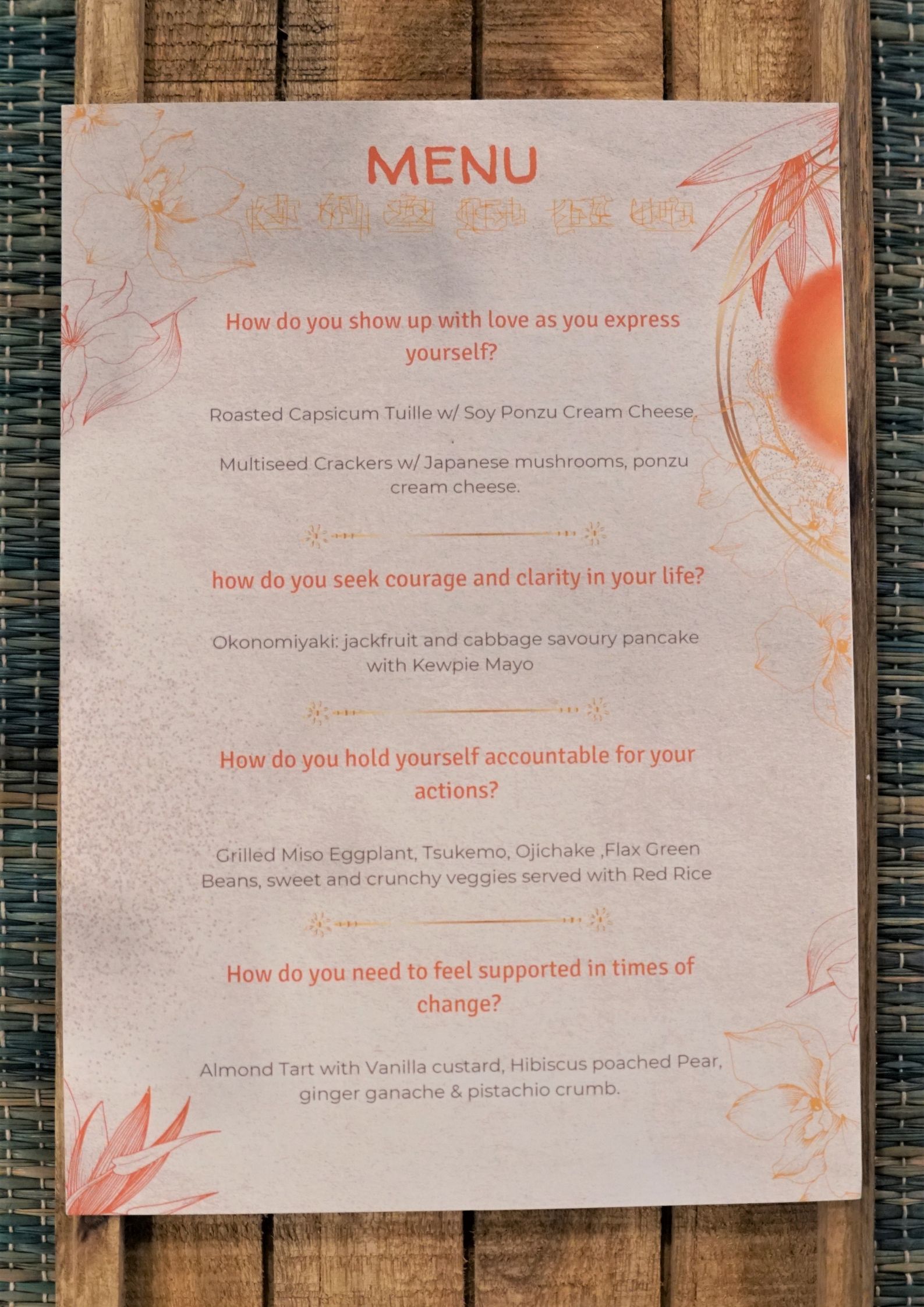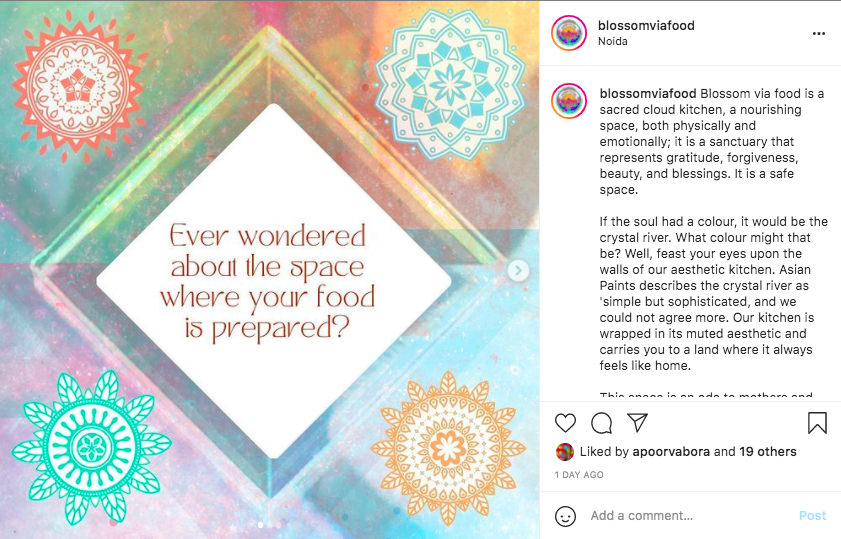💬COVID-19 diaries: How are post-pandemic meals getting a facelift?
A food enthusiast makes sense of post-pandemic meals offerings on-the-roll and shares how it is transforming our beliefs, behaviors and businesses.

Written by Shivani Govind
Living through an active pandemic is certainly transforming our beliefs, behaviors and businesses in unprecedented yet palpable ways. The closest to home domain where I’ve felt its impact only recently has been in our emerging food habits. These provocations came as part of an invite-only soft launch, for an upcoming "sacred" cloud kitchen, set to operate out of NCR that I was privileged enough to attend last month. As I followed the sanitation protocols and walked into an "intimate" yet socially-distanced celebration, I was handed an Ayurvedic Peach Mojito that matched the pink shades of the skies and the decor almost too perfectly.

Sipping on this "immunity-boosting" mocktail made me start to realize how the meaning of "premium" in this space is completely turning over its head. With home-chefs cooking up a revolution in their kitchens and organic mandis delivering the "best of broccoli & friends" in a basket home every week, the dichotomy of dining-out is celebratory and experiential. "Dining-in is convenient" - is over.
This post-pandemic culinary experience is fashioning itself as an artisanal, fine dining experience for a whole new consumer. With call outs such as - "Vegan," "Seasonally rotating menu," "No processed ingredients," "Made with love" and "Building a community." As I literally chewed on the fact that brinjal and jackfruit made up much of the main course, I solemnly decided to never mention to my mother of the dietary transgressions I made that evening.
To be perfectly honest, I probably would have never eaten many of the Japanese-inspired unpronounceable delicacies with mantra-like names if a part of me didn’t believe that they had been prepared from scratch, with thought, love and imbued with deep healing intent. I was suddenly hyper aware of the fact that my own relationship with food has perhaps changed forever. Looking out for "locally available," mixing herbal concoctions and chewing on seasonal produce to stay with the times, while focusing on adding ingredients like turmeric, ginger, ghee, amla, jaggery and the likes into the repertoire, is the newest lifestyle reflex, soon gaining habit traction. In fact, the conversation around food is more inwards-seeking than outwards - a trend that is likely to only become stronger & richer. True to the "new-normal," all the chef's dishes had sprightly toppings of fresh ginger, turmeric, olives, nuts & seeds with herby greens, and jaggery on the side - admittedly her mother’s inputs to add the extra micro-nutrient boot with each bite.
Interestingly enough, each course had an attached reflection question for the table to discuss in a "shared, safe space." It truly felt like what used to be a novelty evolving into a norm, as this crafted manifestation of the deep inner reflection of the pandemic has pushed us to savour these new emerging meanings of nourishment with an embracing spirit.
Pre-pandemic premium experiences were associated most with "higher price tags," "trendy," "higher quality" global brands, built around demands anticipated from elite, affluent category households - focusing on convenience and indulgence. Moving forward - safety, quality and health are appearing to be the overall industry’s emerging response to consumer needs, anchored in "experience" as much as possible.
As the hospitality industry is re-organizing itself the big learning to anchor futures in would be around the central ideas of hygiene and "humanization", re-describing social and experiential boundaries. What was previously niche, will now define the in-home dining experience, sans the ambience, a midground that substantial proportions of the population are keen to occupy as the pandemic resolves itself with the fear of another outbreak, as recent studies indicate. Consumer insights firm, Poocho, has some handy tips here for hospitality players steering the post-pandemic wheel.
Given that trust today increasingly connotes "sanitised," "transparent" and "ethical," the "made-at-home" element adds that extra oomph that post-pandemic palates have begun to favour. When the cost of rent, manpower and maintenance of a dine-in restaurant is saved, a lot more focus can be put on procuring quality raw material and expert staff in the kitchen, making it possible to offer gourmet food at competitive prices. What’s not to love about that proposition?
The chef plans to partner with Swiggy & Zomato, and other delivery partners that have sincerely been launching entrepreneurial home-chefs since the pandemic struck. As the ghar ki rasoi takes centre stage, I can’t help but mentally craft the many creative faces these delivery services will go on to take, pioneering hyperlocal transformations, one neighborhood at a time. Only time and collective consumer cravings would reveal that pathway driving away from post-pandemic paranoias and pet-peeves towards conscious rebuilding.




